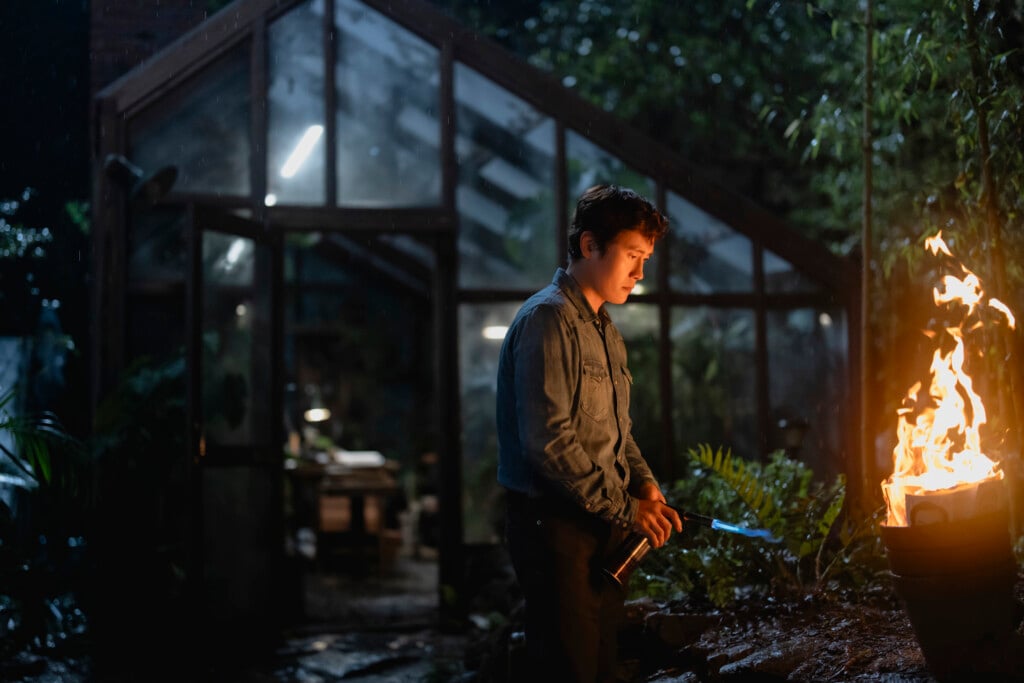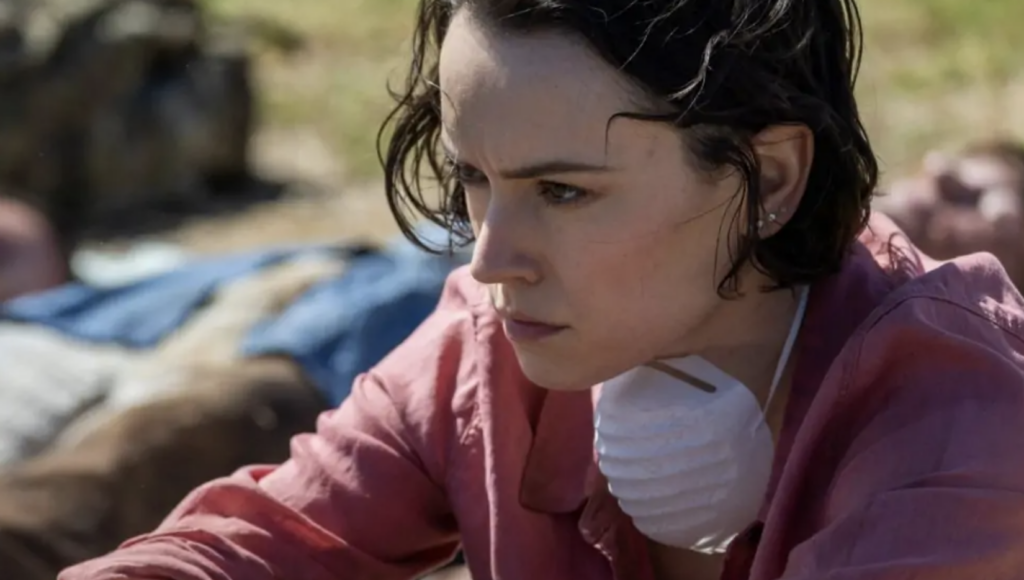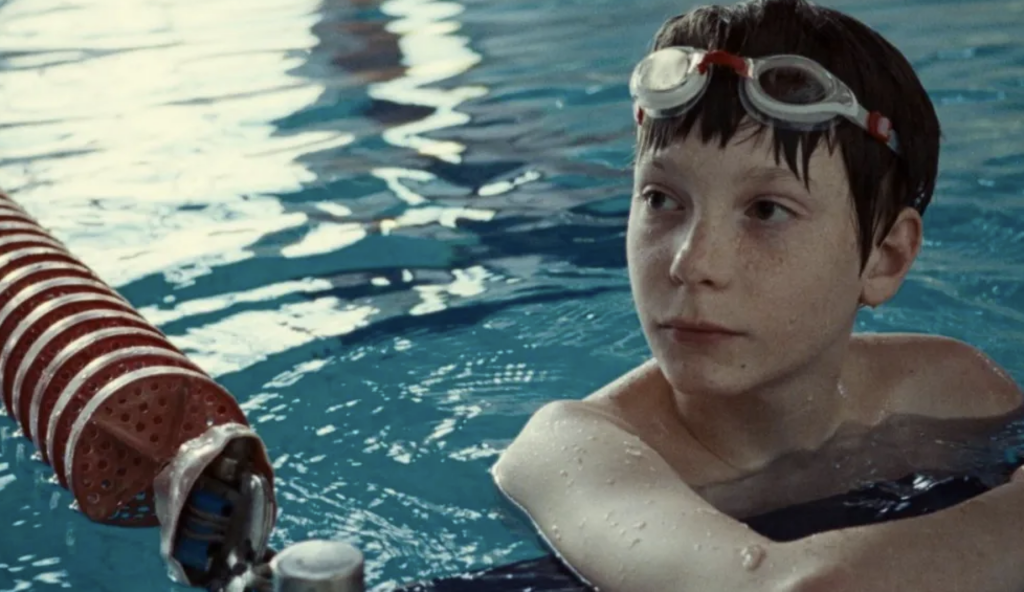Chicago Film Festival 2023: Evil exists in Evil Does Not Exist, Ryûsuke Hamaguchi’s pointed look at everyday moral failings
From Martin Scorsese’s Killers of the Flower Moon to Jonathan Glazer’s upcoming Holocaust drama The Zone of Interest, some of 2023’s most monumental films are concerned with the banality of evil. Despite what its evocative title suggests, Japanese filmmaker Ryûsuke Hamaguchi’s follow-up to his Oscar-nominated opus Drive My Car has some of the same themes on its mind—albeit on a much smaller, but still striking scale.
Music is the first noticeable element in Evil Does Not Exist, which is fitting given the film started as a short accompaniment to the composer Eiko Ishibashi’s live performances. As the camera pans over a wintry canopy of trees, the score’s rueful violin and stirring woodwinds evoke a sense of poignancy (and unease) that the otherwise peaceful setting doesn’t initially reflect, a harbinger of what’s to come in this ecological tone poem.
Suddenly, the music drops out and—in the first of the film’s many abrupt cuts—reveals whose perspective we’re following: Hana (Ryo Nishikawa), an eight-year-old girl trudging alone through the forest with preternatural calm. Hana lives with her father, local odd-jobs guy Takumi (Hitoshi Omika). Since Hana’s mother’s death, the two have eked out a quiet life in Mizubiki, a tiny rural town located a stone’s throw from Tokyo.
Unlike the thoroughly off-the-grid father-daughter duo in Debra Granik’s 2018 film Leave No Trace, Takumi and Hana make things work through their ties to their community and the natural world alike. Takumi spends his days working for his neighbors, chopping wood and collecting the clear stream water that is a local restaurant owner’s most crucial ingredient. He instructs Hana in the ways of the forest, teaching her the names of trees and migratory patterns of local deer, even as he regularly forgets to pick her up from school. But as a hunter’s gunshot announces early on, the modern world threatens to shatter Mizubiki’s delicate ecosystem.
Things grow dire when a Tokyo company announces plans to turn local land plots into a glamping site that, as locals quickly determine in a perfunctory informational meeting, will slowly poison the water supply. Greedy execs are hellbent on pushing the project through to qualify for post-pandemic grants, consequences be damned.
Rather than opting for a more straightforward tale pitting the community against soulless capitalists, Hamaguchi introduces a new wrinkle. Suddenly we’re following Takahashi (Ryuji Kosaka) and Mayuzumi (Ayaka Shibutani), the hapless glamping representatives tasked with soothing locals’ concerns. They’re employees of a Tokyo talent agency that recently expanded into corporate PR—no wonder they’re clueless!
The pair’s uncaring boss commands them to head back to Mizubiki and win the locals over by offering Takumi a position as groundskeeper. During their car ride out of the city, their candid discussions add nuance to two characters who could easily be archetypal stooges. The younger Mayuzumi is questioning a career change after joining the agency to follow dreams of joining the entertainment industry. The entire glamping ordeal has left Takahashi eager to seek Takumi out as a mentor for leaving city life altogether… even if he doesn’t fully understand what that entails.
Films like Killers of the Flower Moon and The Zone of Interest tackle massive historical atrocities through the microcosms of individuals and relationships. By contrast, Evil Does Not Exist is preoccupied with how ordinary people respond to and choose to resist (or ignore) their involvement in everyday tragedies. How do you reconcile your need to work with your culpability in your employer’s actions, even if they’re deplorable? If you dream of living a “simpler life,” how can you do so without inadvertently damaging the community whose backs you’re building your self-actualization quest upon?
Alongside frequent jarring cuts, Hamaguchi’s cinematography keeps the audience intentionally off-kilter. There are shots practically assuming the point of view of nature, like the opening tracking shot. Others, like the decision to position the camera in the back of the car during Takahashi and Mayuzumi’s conversation, alienate us from the characters even as they grow more trustworthy on the surface. In retrospect, perhaps these unorthodox choices prepare viewers for the film’s climax, in which an unexpected tragedy and ensuing burst of violence bring the characters’ dueling ideologies to a head with blunt force.
Clocking in at an hour and 46 minutes, Evil Does Not Exist is by far the shortest of Hamaguchi’s films (Drive My Car and 2015’s Happy Hour run for roughly three and five hours, respectively). If you find yourself confounded by its ending, you’re not alone. While the film isn’t the same totemic achievement as, say, Drive My Car, its enigmatic moral fable can’t be counted out either. Spare but undeniably thought-provoking, Evil Does Not Exist is an unexpected but welcome new work from one of international cinema’s most exciting working filmmakers.





